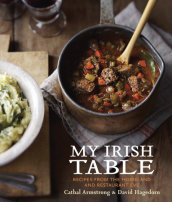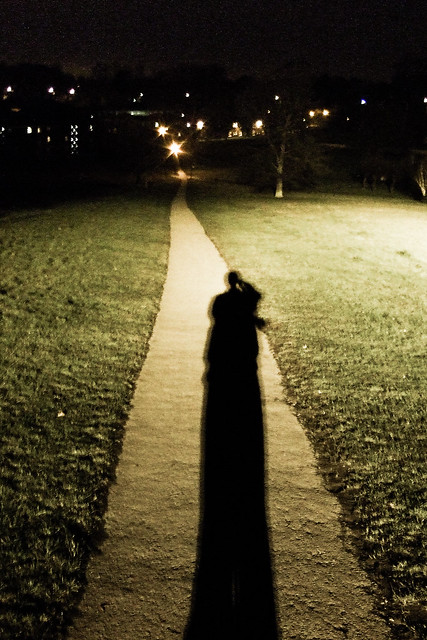 |
| Photo Credit: https://www.flickr.com/people/photo-knight/ |
Sukkot began last Wednesday evening and will end this coming Friday evening . While it is a holiday that my Jewish friends celebrate, it's not one that many Christians know or care about, even though it is the one holiday that the Bible mentions that both Jews and Gentiles will celebrate.
"If any of the families of the earth do not go up to Jerusalem to worship the King, the LORD of hosts, there will be no rain upon them. And if the family of Egypt do not go up and present themselves, then on them shall come the plague that the LORD inflicts on the nations that do not go up to keep the festival of booths. Such shall be the punishment of Egypt and the punishment of all the nations that do not go up to keep the festival of booths." --Zechariah 14:17-19
The emphasis during Sukkot is about temporary dwellings, to remember the time of Israel wandering in the desert.
On the Sabbath during Sukkot, the book of Ecclesiastes is read. Overall, Ecclesiastes is a fairly depressing book. Qoheleth, the author, is fairly uncertain about God and life. He is sure there is a God and that God knows what He's doing, but humans really have no clue as to what this is. He writes that God "has made everything suitable for its time; moreover he has put a sense of past and future into their minds, yet they cannot find out what God has done from the beginning to the end." (Ecclesiastes 3:11)
He thinks God has made life confusing:
"Consider the work of God; who can make straight what he has made crooked? In the day of prosperity be joyful, and in the day of adversity consider; God has made the one as well as the other, so that mortals may not find out anything that will come after them." (Ecclesiastes 7:13-14)
"Just as you do not know how the breath comes to the bones in the mother's womb, so you do not know the work of God, who makes everything." (Ecclesiastes 11:5)
And then there are Qoheleth's thoughts on death:
- 1:4, 11 people are forgotten when they die
- 2:12-17 all his wisdom will get him nothing, just like the fool
- 2:18-21 hated toil, hated to leave it to his heirs
- 3:19-21 humans and animals both die
- 5:13-16 we come in to world with nothing and leave it with nothing
- 8:8 you can't control when you die no more than when you can control the wind
- 9:4 But whoever is joined with all the living has hope, for a living dog is better than a dead lion.
If God makes no sense and life has little meaning what might people do to find meaning in life? Qoheleth explores some of what might make life meaningful:
- Pleasure (2:1 ff), but his conclusion is that it is vanity
- Work (2:18-23; 4:4;11:6), but his conclusion is that it is vanity
- Wealth/Possessions (5:10-12; 6:1-2), but his conclusion is that it is vanity
- Learning (1:12-18; 2:12-17; 9:13-16), but his conclusion is that it is vanity
- Religion/Piety (5:1-7) but his conclusion is don't get involved; it's dangerous, relationship with God is based on fear.
Vanity does not mean vanity in the sense that it is all about me as an individual (although it definitely can be that way for many of us). When Qoheleth uses the word vanity, it is the Hebrew word hebel, which means vapor or breath. It is something that dissipates, something that cannot be grasped. It is something that is meaningless. This is Qoheleth's view of life.
Qoheleth seems to be desperately trying to find meaning in life before it ends.
In the book
When All You’ve Ever Wanted Isn’t Enough: The Search for a Life that Matters, Harold Kusher writes that "Ecclesiates wrote his book many hundreds of years ago to share with us his disappointments and frustrations, to warn us that we should not waste our limited time as he did, in the illusion that wealth, wisdom, pleasure, or piety will make our lives matter. He tells us his story with mounting desperation, as one road after another leads to a a dead end and he begins to see himself running out of years and running out of options. But he has not written his book only to express his frustration or to depress us. In the end, he has an answer. But it is an answer that makes sense only to someone who has shared his earlier dead ends and disappointments. That is why he offers it to us at the end of his story rather than at the beginning." (42)
Qoheleth tells us all the things he’s done to give life meaning that haven’t worked throughout his life journey. He is afraid of dying before learning how to live. He doesn't really wonder "what does life mean" but "what does my life mean?"
What does my life mean?
I think we all wonder that at some point in our lives, and maybe at multiple times. I've been wondering that myself for the last couple of years as I've been searching for my current and next purpose(s) in life; that is one reason I began my "
Come Alive" series and my "
Year of Renewal" project.
I have wondered off and on, if my writing really is worth it, if it really has any meaning. I read all the advice out there about frequency of blogging and length of posts and platform building and networking and going to conferences and time management and don't make these 5 mistakes or do these 10 things and so on--and it often all just seems like it is too much to take in and too much to implement.
In addition, in such a fast-paced world, if a blogger doesn't write her thoughts out in reaction to whatever the biggest current event of the day is, then it ends up becoming irrelevant and old news. Or, sometimes, I read something that another blogger writes and I think "I wrote a similar post three years ago" or "I had a draft started about this very point; why bother now?" Sometimes I just don't understand the popularity of some posts. Maybe sometimes, what I write, has also been written by someone else; I am just unaware of it. And so, I wonder, where exactly do I fit in this world?
Or where do I fit in church? I've often found that there seems to be a "right" way to do church, to teach people: keep it very simple. It's ok that I love the Bible and love to learn it in depth, but most people aren't like that, and it scares them off from the Bible. I can just study it on your own, as always. There's no community in that (But I am slowly finding real-life people who do have this interest, and am hoping it is the start of something wonderful).
I'm not crazy about Qoheleth's view of life. I think I dislike it, though, not so much because of its negativity, but because it is often something that I feel. Why bother cleaning up after the kids when they just mess it all up again? Why bother trying to be organized when it doesn't last? Why bother trying to write and study and enjoy it when I have so many other responsibilities that must take priority? Why bother with anything?
There is something positive about Ecclesiastes, though. If we read through it carefully and ask the questions "What is good? and "Who gives enjoyment?", we will find some answers.
- 2:24-26; 3:12-13; 3:22 5:18-20; 8:15 Eating & drinking & finding enjoyment in work
- 4:9-12 friendship
- 9:7-10 enjoy life before you die
These are activities in which we participate every single day in a variety of ways. Every day, we eat and drink and do some type of work. Every day, we have the opportunity to participate in friendships and to enjoy life.
So many of us are looking for the One Big Thing in our lives that will define us and give us meaning. For some, it's finding the perfect marriage partner. For others, it's climbing to the top of the career ladder. It could be fame, or money that we desire. We often feel as if we are wandering in the desert of life--and perhaps because that is something all experience, it is the reason the Bible mentions that all will celebrate this holiday. But life is not about the One Big Thing. It's about everything, the good and the bad, together. All of life matters.
I'm not sure that after writing this, I'll really remember my own words. Every day brings frustrations and feelings of inadequacy. Even they will be hebel and dissipate. But for now, at this moment in time, Ecclesiastes means to me that yes, life is a mist, but yes, life--my life--and yours--matters. You are not a finished product.












.jpg)

